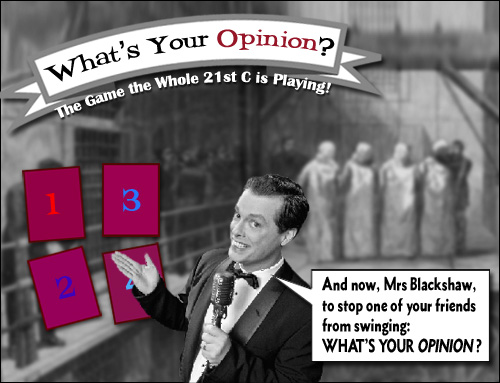
Rats, Roundup and Rotten Research
There have been interesting developments in the news these last few weeks, regarding science, the way it’s practised and the way it’s reported. Notably, but not exclusively, there has been an incident where French scientists announced that they had established direct links between extremely high incidences of large cancerous tumours in rats, and maize that had been genetically modified to resist the weedkiller Roundup. ((An important thing to note about the research is that the Roundup itself was under test, as well as the GM maize. Few commenters make a distinction when writing about this.)) Their research had been published in a peer-reviewed journal, and, on the face of it, the findings of the two year study are terrifying. This, of course, is BIG news for media outlets that want to sell stories off the back of the already high level of distrust of GMOs among the general public.
Except.
It turns out that there were a few things not quite kocher about this whole affair. For a start, the researchers had taken the unusual step of levying a journalistic embargo on the announcement of their results, requiring interested parties to sign non-disclosure agreements that would prevent them from showing the research to anyone before the findings were publicly announced. The effect of this was that outlets who had access to the story – not wanting to be last on the block in bringing the very latest news to their readership – published the findings as soon as the embargo was lifted, without taking the precaution of having the details checked by other experts. Indeed, when the story hit the streets, criticism of the study, the peer review process and the way the journalistic embargo was used was quick to come from numerous informed parties. What we had here was a situation that New York Times environment reporter Andrew Revkin calls ‘single study science‘ where the results of solitary instance of unsupported research is announced to the world as a definitive conclusion. All good scientists are very nervous when they hear this kind of thing. But it gets worse. When scrutiny was brought to bear on the experiments themselves, it became clear that there were many, many procedural problems with them. For example, the control process used for the tested rats was highly questionable, as was the statistical analysis of the data. Not only that, the type of rat chosen for the study is particularly prone to the spontaneous development of cancerous tumours. There has been a lot written about this incident over the last few weeks, and its deconstruction is not the main thrust of this post, so I won’t dwell on it further. ((There is an excellent examination of some of the problems with the study here on Discover, should you want to read more.)) It’s sufficient to say that, given the way the scientists concerned went about publicizing this research, there remain many questions to be answered about their experiments, the way they chose to inform the community about what they had found and the peer-review process that let the research be published. What we can say is that far better scientific scrutiny is needed before we can establish whether a link exists between Roundup modified maize and cancer in laboratory rats.
That’s not the news you got from the mainstream press, though, because even though many outlets were quick to publish followup clarifications, the main purpose of the embargo was achieved and the less-discerning mainstream media mostly went with the ‘Scientists PROVE that GM corn causes hideous tumours!‘ story. ((Exaggeration for effect. There were no actual headlines that said that, but I bet that’s how many anti-GMers read it.)) Even writers for journals like the Guardian (that should know better) have demonstrated their partisanship by reflexively defending the French scientists involved. ((The Guardian article I have linked here is an illuminating read. For a start, it glosses over the study’s ‘methodological’ errors as if that’s a small thing. In science, methodology is EVERYTHING. It also fails to address a key objection to the whole affair – that journalists were tricked into publishing the results at face value, rather than being allowed to follow the more usual process of getting some views from other experts in the field.)) ((Even though it’s not germane to the point of this post, I want to make it clear that I’m not really a supporter of GMO, at least not in the way that it allows big companies to stake monopolies on food supply. I can see the great good that can come from some kinds of GM, but I am deeply suspicious about the commercial interests that control it. I’m far more relaxed about the science, probably because I understand it a little. It’s not the science we have to fear here, it’s the greed and duplicity of humans who wish to exploit it. The problem is that most people can’t actually separate those two concepts.))

Cooking the Books
Moving on, elsewhere the New York Times brings news of a study published in the Proceedings of the National Academy of Sciences that finds that, in a review of over 2,000 retracted scientific papers in biomedical and life sciences, an astounding three-quarters could be attributed to scientific misconduct (41.3 percent being actual fraud or suspected fraud). Taken in concert with a tenfold increase in retractions themselves over the last decade, this is a disturbing finding.
One of the authors of the study, Dr. Arturo Casadevall of Albert Einstein College of Medicine in the Bronx, said:
It convinces me more that we have a problem in scienceâ€
If you view this research in concert with the GMO affair that I detailed above, and other recent missteps of science like the Darwinius debacle, it is plain that Dr Casadevall is right. We have a problem in science.
Crucially, though, the problem is in science, but not with science itself, and this is what I want to talk about today. It might seem that the delineation I just made is splitting hairs, but I believe that it is important that we understand the difference between what science is, and the way in which it is undertaken. It seems to be that, to some, the philosophy of science encompasses its practice also, and when they talk about ‘science’ they are conflating the two things. Indeed, I recently had a discussion with the editor of a reliable online news outlet over his claim that the GM story showed ‘the imperfections of science’. My view is that it does no such thing. What it does show is that some scientists who were keenly aware of the enormous credibility of the scientific process exploited their understanding of how its mechanism works to give themselves a chance to get some high profile exposure. It shows the imperfections of some humans practising science, which is an entirely different thing. The editor’s explanation for his stance was that he believed science was the whole kit & caboodle – the philosophy, the practice and the practitioners ‘with their human failings’. I told him that I thought it was extremely perilous to look at science in this way. ‘If a chef served you a bad meal,’ I asked, ‘Would you blame that on gastronomy? If a banker ran off with your life savings, would that be the fault of economics?’ It is, I said, not a defect of the scientific process that some people use it ineptly or fraudulently.

Villagers with Flaming Torches
What worries me, and it’s something of which I have become keenly aware over the many years of Tetherd Cow, ((Almost unbelievably, next January will be the 8th anniversary of TCA.)) is that for a great number of people, probably the majority, science is something like a ‘point of view’ or a ‘belief’ that is adopted by a cult of people that call themselves ‘scientists’ in the same way as someone might decide to take up religion. Those of us who understand science well go to quite some trouble to explain how much in error that notion is, how science differs significantly from religion and pseudoscience and opinion, and why it is preferable to any of those things as a reliable way of negotiating our existence.
Many folk, on seeing headlines like ‘Science is Wrong Again!’ don’t make a definition between the the bad or unprincipled execution of science and the strict protocols and requirements of proper science itself; between, if you like, the chef and gastronomy. In essence, they’ve eaten one bad meal prepared by sloppy kitchen staff and the experience has given more substance to their already-formed conviction that there is something wrong with the whole idea of cooking food.
To make the situation worse, when scientists are canny enough to appear to follow the rules set down by scientific enquiry, and then their results are called into question outside the mechanism that science itself holds up to keep it on the straight and narrow, it just confirms people’s distrust of something of which they’re already suspicious. If the scientists themselves can’t agree on things, well, isn’t that exactly like religion?
My concern is that in a time where we’re in desperate need of science – of rational, unflinchingly critical appraisal of our world and its problems – the kind of behaviour we’re seeing from scientists in increasing numbers is doing profound and possibly even irreparable damage to the discipline.
To get people to understand that the practise of science as a way of navigating the universe is preferable to the hobbles of religion and superstition, it’s crucially important that people who write about it don’t portray it as a belief system made up of practitioners who can define it in any way they choose (whether by intention or by incompetence). Unlike religion, science is able – indeed, is required – to examine itself and fix its shortcomings if necessary. This facet of science allows it to become stronger and stronger as time passes, and it is this strength, this reliability, that makes it such a formidable tool. Bad practitioners of science should be outed as such. These are people who understand and rely on the power of science and exploit it to their own ends. They are not scientists, because to be a real, proper scientist takes guts. To be a real scientist requires that you look reality right in the eye and suck it up when what it tells you doesn’t agree with what you’d hoped, what you’d expected, or what you’d like. To be a real scientist, you need to practise science. And all real scientists know exactly what that means.







